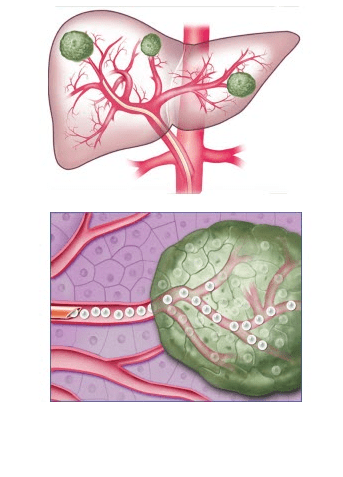Liver Cancer Treatment: What is Chemoembolization?

Liver cancer treatment Farmington:
Cancer of the liver can be effectively treated if caught early enough; however, if cancer has spread from other areas in the body to the liver, it’s much more difficult to eradicate. One of the most effective ways to fight liver cancer is through chemoembolization, also known as hepatic artery infusion therapy (HAIT). Here’s what you need to know about this treatment option:
How does the Procedure work?
In general, chemoembolization isn’t a surgical procedure. It’s usually performed as an outpatient treatment. This means you’ll go home on the same day as your treatment without having to stay overnight in a hospital or clinic. The goal of chemoembolization is to deliver chemotherapy directly to and destroy tumors in areas of concern, while also controlling the spread and growth of cancer cells throughout your body.
Who Should Have It Done?
Liver Cancer Treatment Farmington, or chemoembolization, can be done to treat cancers in stages 1-4 of their development. Stage 1 cancers are referred to as localized because they have not spread beyond where they originated. Stage 4 tumors may have spread beyond where they originated, but have not yet metastasized (spread) anywhere else in the body. Cancer cells may have already started spreading from a localized tumor when it’s diagnosed, though.
Will I Need Chemotherapy/or Radiation Therapy Before My Procedure?
Your doctor will talk to you about chemotherapy and/or radiation therapy. Sometimes, a patient with liver cancer does not need treatment before having chemoembolization. Other times, your doctor might recommend one or both of these treatments. Radiation therapy uses high-energy x-rays to kill tumor cells in a localized area of your body (like your liver). Chemotherapy uses drugs that destroy cancer cells or keep them from growing.
Will I Need to Stop Taking Any Medications Before My Procedure?
It’s important to remember that chemoembolization is an invasive procedure, so you’ll need to discontinue taking blood thinners or medications known to interfere with clotting. This means warfarin (Coumadin), aspirin, and other nonsteroidal anti-inflammatory drugs, as well as all over-the-counter pain relievers, will have to be discontinued at least three days before your
How Long Does It Take?
A typical treatment will last between two and three hours. Some patients may need to have several sessions of chemoembolization to completely eliminate their cancer, but these procedures are considered minimally invasive and require only a few weeks for recovery time.
Where Can I Get This Procedure Done and Who Performs These Procedures on a Regular Basis in the U.S.?
Chemoembolization has been performed in various countries around the world since 1990 and was introduced to American hospitals in 1998. Today, it’s a well-established procedure that many oncologists and interventional radiologists regularly perform. Although there are no official statistics, it’s believed that over 30,000 chemoembolizations were performed in 2006 alone. It’s important to note, however, that not all physicians have had training in performing chemoembolization procedures; if you want to make sure your physician is qualified to treat your condition with chemoembolization, ask them about their specific experience